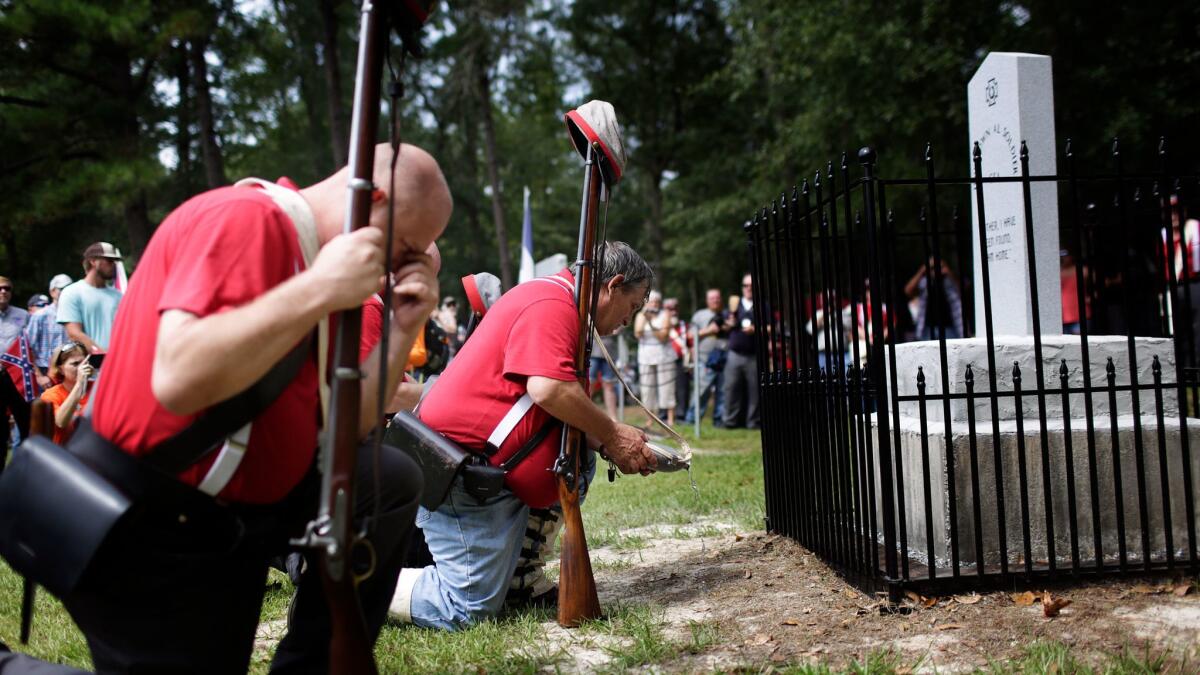Opinion: The myth of the South’s peaceful surrender in the Civil War

- Share via
To the editor: Congratulations for calling attention to new memorials to the Confederacy popping up in parts of the South. The effort would be more helpful if it did not perpetuate subtle myths accepted even by many who condemn these distortions of national memory. (“As monuments to the Confederacy are removed from public squares, new ones are quietly being erected,” Oct. 22)
For instance, Confederate Gen. Robert E. Lee’s “surrender at Appomattox” did not end the Civil War, as your article implies. Even after Confederate Gen. Joseph E. Johnston’s surrender of a larger army a few weeks later, the insurrection was not declared officially over until Aug. 20, 1866, with Texas the final holdout.
Yet Appomattox, with its handshake between Lee and Union Gen. Ulysses S. Grant, has become a national symbol of reconciliation, honored by most liberals, including Ken Burns in his celebrated Civil War documentary.
At the same time, the only national monument to Reconstruction in Beaumont, S.C., and the 150th anniversary of the Reconstruction Acts of 1867, which responded to the need to combat continued armed resistance through military occupation, remain largely unacknowledged by the media.
Brook Thomas, Irvine
..
To the editor: Learned scholars and armchair historians may debate the causal history of the Civil War until they’re blue in the face, but if you read the letters and diaries of Southern soldiers who actually fought for the Confederacy, you’ll find a much different motivation: Their homeland was being invaded by armies from the North.
There’s a reason history books in the South called it the “War of Northern Aggression.” And likewise, soldiers who fought in Union blue called it the “War of the Rebellion.”
Leave causal history to the historians and let’s all try to have some perspective and compassion for the lost souls who knew very little about the politics and economics of the war. Most Southern foot soldiers — most of whom didn’t own slaves and knew nothing of states’ rights — were simply fighting to defend hearth and home.
And lest you think most Union soldiers were fighting to end slavery, better read up on your history. Bigotry in America has never been confined to the South.
Rhys Thomas, Valley Glen
..
To the editor: Yes, the Civil War was all about states’ rights. Specifically, a state’s right to allow the enslavement, rape and torture of people based on the color of their skin.
Joe Leggett, Aguanga, Calif.
Follow the Opinion section on Twitter @latimesopinion and Facebook
More to Read
A cure for the common opinion
Get thought-provoking perspectives with our weekly newsletter.
You may occasionally receive promotional content from the Los Angeles Times.









